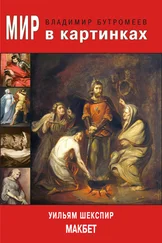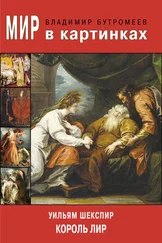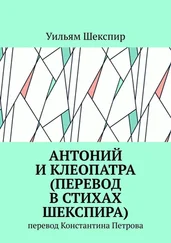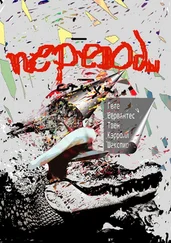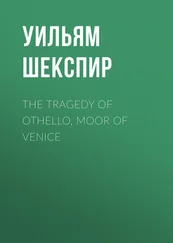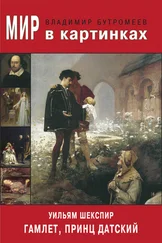Уильям Шекспир - Othello
Здесь есть возможность читать онлайн «Уильям Шекспир - Othello» — ознакомительный отрывок электронной книги совершенно бесплатно, а после прочтения отрывка купить полную версию. В некоторых случаях можно слушать аудио, скачать через торрент в формате fb2 и присутствует краткое содержание. Жанр: Старинная литература, на английском языке. Описание произведения, (предисловие) а так же отзывы посетителей доступны на портале библиотеки ЛибКат.
- Название:Othello
- Автор:
- Жанр:
- Год:неизвестен
- ISBN:нет данных
- Рейтинг книги:4 / 5. Голосов: 1
-
Избранное:Добавить в избранное
- Отзывы:
-
Ваша оценка:
- 80
- 1
- 2
- 3
- 4
- 5
Othello: краткое содержание, описание и аннотация
Предлагаем к чтению аннотацию, описание, краткое содержание или предисловие (зависит от того, что написал сам автор книги «Othello»). Если вы не нашли необходимую информацию о книге — напишите в комментариях, мы постараемся отыскать её.
Othello — читать онлайн ознакомительный отрывок
Ниже представлен текст книги, разбитый по страницам. Система сохранения места последней прочитанной страницы, позволяет с удобством читать онлайн бесплатно книгу «Othello», без необходимости каждый раз заново искать на чём Вы остановились. Поставьте закладку, и сможете в любой момент перейти на страницу, на которой закончили чтение.
Интервал:
Закладка:
T. S. Eliot famously read Othello’s farewell speech (“Soft you; a word…”) as a deluded man cheering himself up. That’s a bit harsh, isn’t it? But on the other hand, there is an element of Othello, after having been stripped bare (“goats and monkeys,” “that common whore of Venice,” and all that), now protecting his image once again with the carapace of his poetic music?MA: I think that’s actually a half-truth. Yes, there’s no question that his assessment of what has happened is going to be different from ours. We wouldn’t appraise it in the same way. But I don’t think that necessarily means he is twisting the truth in a cynical or manipulative way. If you feel life draining out of you then you will say things that aren’t necessarily going to be gospel truth. But I do think that a lot of what he says in that last speech is true. In a way, what is awful about it is not the reconstruction of his image, but his bewilderment as his mind races. Othello actually says very little in that last scene. He is like a spectator. Now he has learned what really happened, he has to reassess reality. So the scale of what’s happening in his head when his life is draining away is colossal. I don’t think it’s anything manipulative or vain. I think it’s a man in a state of complete incomprehension and bewilderment. Like centuries of people since, he’s trying to work out why it happened. And Iago gives nothing away; he takes his secret to the grave. It’s a very hard speech to generalize about. It’s actually a man trying to find truth.
ANTONY SHER ON PLAYING IAGO Sir Antony Sherwas born in Cape Town in 1949. After compulsory military service in South Africa, he traveled to London to train as an actor. He joined the Liverpool Everyman Theatre in the 1970s, working with a group of gifted young actors and writers that included Willy Russell, Alan Bleasdale, Julie Walters, Trevor Eve, and Jonathan Pryce, playing Ringo in Willy Russell’s John, Paul, George, Ringo…& Bert . He joined the RSC in 1982 and played the title role in Tartuffe and the Fool in King Lear . In 1984 he won the prestigious Laurence Olivier Award for his performance in the RSC’s Richard III . Since then he has played numerous leading roles in the theater as well as on film and television, including Tamburlaine , Cyrano de Bergerac, and Macbeth , as well as Shylock in The Merchant of Venice and Iago in the RSC’s 2004 Othello at the Swan Theatre directed by Gregory Doran, which he discusses here. He also writes books and plays, including the theatrical memoirs Year of the King (1985) and Woza Shakespeare: Titus Andronicus in South Africa (1997, cowritten with his partner Gregory Doran).
The play is called Othello and yet Iago’s is the largest part. Does that somehow make the role different from Macbeth or Richard III or Hamlet or Lear, where the journey of the lead actor and that of the play are the same?I don’t think it matters that the play is called Othello , yet Iago is the larger role—the piece is structured as a thrilling combat between two heavyweights. Iago may be the instigator of the fight, and Othello the victim, yet the two men become locked together in a deadly hold, dragging each other down to destruction. And so they share, equally, the journey of the play.
Unlike most of the big Shakespearean roles, Iago’s contains a large measure of prose as opposed to verse: is there something distinctive about inhabiting a prose mind?The fact that a large amount of Iago’s dialogue is written in prose became very useful to our setting of the play, which was a military base on Cyprus, mid-twentieth century. In this context Iago was a recognizably modern NCO figure—a rough-talking square-basher, a master of barrack-room banter, and one who knows when to break open the bottles and start the songs, a veteran serviceman, immensely popular with the troops, and, to the rest of the world, just “honest Iago.” This interpretation was much more available in prose than it would’ve been in verse.
Iago’s language is full of sexual imagery throughout the play. How much of a clue to his character does that give you?Iago can’t seem to open his mouth without some sexual allusion spilling out. You could argue that this is just the way soldiers talk, but there’s something odder, more perverse in Iago’s language. To him, having sexual intercourse is “making the beast with two backs.” Why this savage image? Perhaps a clue comes in his speech about Desdemona: “Now, I do love her too, / Not out of absolute lust—though peradventure / I stand accountant for as great a sin.” Why does Iago have to reassure us that he could be lustful if he chose? We wouldn’t expect anything less of this supremely macho man. Is it that he’s impotent, and physically incapable of making the “beast with two backs”? Or is he sterile? Could these things account for his strange energy, his appetite for chaos, his nihilism? I’m not sure. I certainly based my portrayal on the idea of a man with a severe sexual hang-up, though I rather liked leaving this undefined.
Does Iago lie to the audience? Are we really supposed to believe his accusations about both Othello and Cassio cuckolding him?I don’t believe that Iago lies to the audience in his soliloquies. When he suggests that both Othello and Cassio have slept with his wife, Emilia, he thinks it’s true, so it’s no more like lying than Leontes’ accusations about Hermione’s fidelity in The Winter’s Tale . In fact, having previously played Leontes, I believe he and Iago are suffering from the same condition; medically it’s known as morbid or sexual jealousy, when someone becomes convinced, falsely, that their partner is betraying them. This possibility was enhanced in our production by Amanda Harris playing Emilia as a boozy, flirty army wife. We all felt that although the play is famously about one man consumed with jealousy, it’s actually about two. Iago seems as much under the spell of the “green-eyed monster” as is the Moor. I think the reason that Iago is so successful at duping Othello is that Iago knows about jealousy from deep within.“O, beware, my lord, of jealousy,” he says with real feeling. Earlier, talking of his suspicion that Othello has slept with Emilia, he says “the thought whereof / Doth—like a poisonous mineral—gnaw my inwards.” Iago is like a man with a highly contagious disease, who is determined to pass on the germs. This aspect of Iago was crucial to my interpretation. I totally reject Samuel Taylor Coleridge’s reading of the role, where Iago is simply possessed by some kind of “motiveless malignity.” 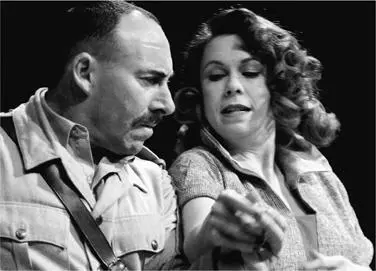 9. Antony Sher as a morbidly “jealous” Iago with Amanda Harris playing Emilia as a “boozy, flirty army wife” in Gregory Doran’s RSC production at the Swan Theatre in 2004.
9. Antony Sher as a morbidly “jealous” Iago with Amanda Harris playing Emilia as a “boozy, flirty army wife” in Gregory Doran’s RSC production at the Swan Theatre in 2004.
Some have found a homoerotic strain in the play—or at the very least a sharp contrast between the intense all-male world of the army and the domestic/feminine sphere introduced by Desdemona. Was this a productive approach for you?As a gay man I’ve never found any homoerotic strain in the play. I suppose the theory comes from the sequence when Iago tells of sleeping next to Cassio one night, and Cassio becoming aroused, and kissing Iago. I think this is just Iago in rabid, tabloid-journalist mode, trying to paint Cassio in the most salacious colors imaginable. I also wonder if the Iago-as-gay idea comes from a time when gay equaled evil. Hollywood did this for a while: the bad guy was always some twisted faggot. (Now it’s changed: the bad guy is just played by a British actor.)
Читать дальшеИнтервал:
Закладка:
Похожие книги на «Othello»
Представляем Вашему вниманию похожие книги на «Othello» списком для выбора. Мы отобрали схожую по названию и смыслу литературу в надежде предоставить читателям больше вариантов отыскать новые, интересные, ещё непрочитанные произведения.
Обсуждение, отзывы о книге «Othello» и просто собственные мнения читателей. Оставьте ваши комментарии, напишите, что Вы думаете о произведении, его смысле или главных героях. Укажите что конкретно понравилось, а что нет, и почему Вы так считаете.


